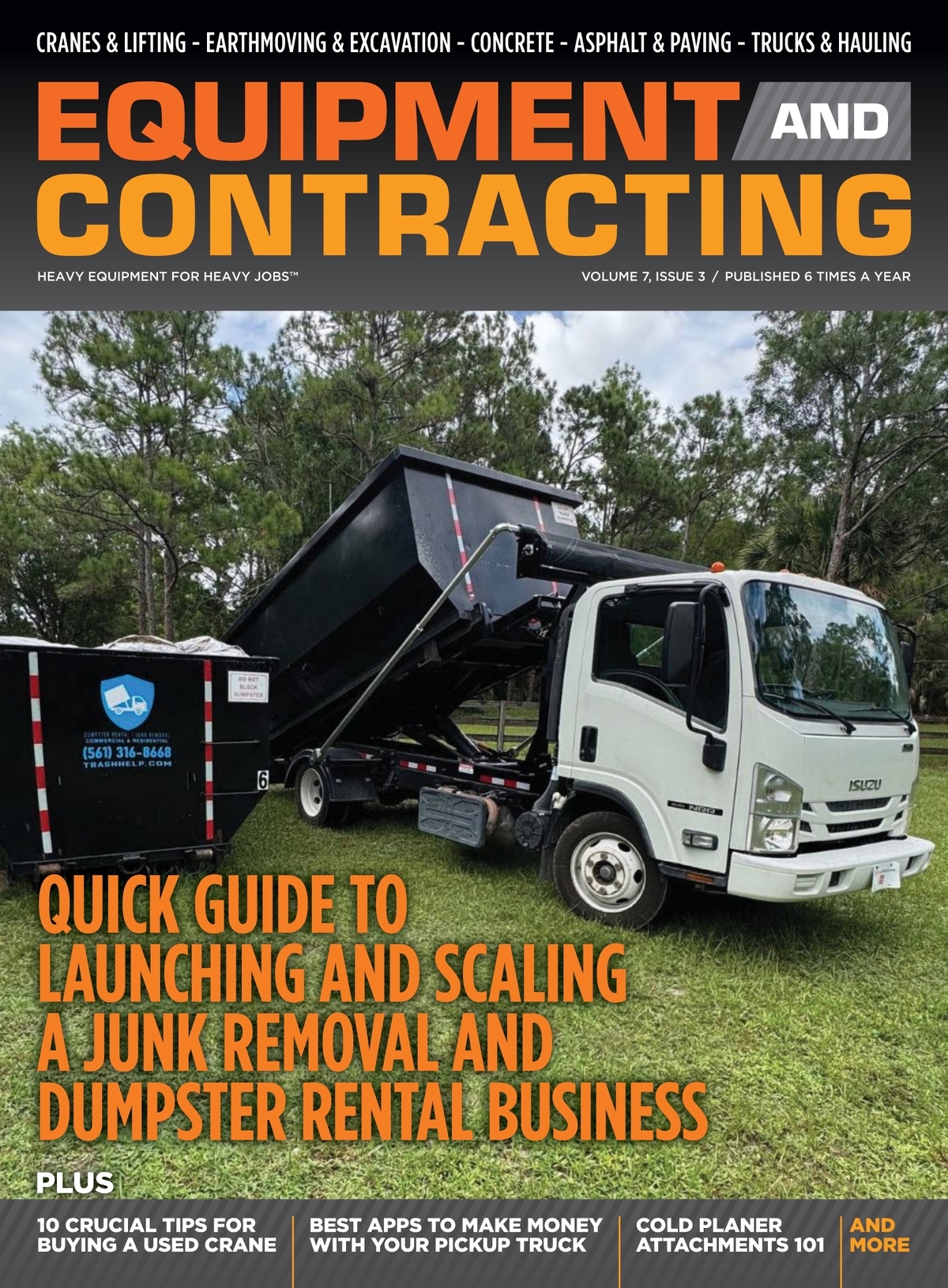
View the complete article here.
The trucking industry is the backbone of commerce, enabling the efficient movement of goods across vast distances. For those looking to start a business with minimal upfront investment, entering the logistics space as a truck dispatcher is an attractive option. A truck dispatch business serves as the vital link between carriers, brokers, and shippers, ensuring goods are moved efficiently while maximizing profits for drivers. This guide will walk you through everything you need to know to start a thriving truck dispatch business.
What is a Truck Dispatch Business?
A truck dispatch business acts as a coordinator for trucking companies or independent owner-operators, finding loads, negotiating rates, planning routes, and handling much of the communication between parties. Dispatchers ensure that drivers spend less time searching for loads and more time driving, which translates into higher earnings for both the driver and the dispatcher.
Dispatchers also take on administrative tasks, such as handling contracts, invoicing, and maintaining compliance with industry regulations. Their role is critical to keeping the trucking ecosystem running smoothly and profitably.
Why Start a Truck Dispatch Business?
The trucking and logistics industry is a multi-billion-dollar sector that is growing year over year, driven by increased consumer demand and the rise of e-commerce. With more goods needing to be transported than ever before, reliable dispatchers are in high demand.
Starting a truck dispatch business offers several advantages, including:
- Low startup costs: You don’t need to own trucks, hire drivers, or maintain physical inventory. Most of the work can be done remotely with a laptop, phone, and internet connection.
- Flexibility: Dispatchers can set their own schedules and work from anywhere.
- Scalability: As you build relationships with carriers and brokers, you can expand your operations by adding more clients or hiring additional dispatchers.
For entrepreneurs who are organized, resourceful, and skilled communicators, this business presents a lucrative opportunity.
Industry Research and Understanding
Key Players in the Trucking Industry
Understanding the roles of various participants in the trucking ecosystem is essential:
- Carriers: These are the companies or independent owner-operators responsible for physically transporting goods. They rely on dispatchers to find loads, negotiate rates, and streamline their operations.
- Freight brokers: Brokers connect shippers with carriers and often provide dispatchers with load opportunities. Building relationships with brokers can help you secure consistent work for your clients.
- Shippers: These are businesses that need their products moved, such as manufacturers, wholesalers, and retailers.
- Dispatchers: You’ll play a key role in coordinating the flow of information and ensuring everything runs smoothly between the above parties.
How the Dispatching Process Works
Dispatchers start by identifying loads using online load boards like DAT or Truckstop. Once a suitable load is found, they negotiate rates with brokers on behalf of the carrier, ensuring the load is profitable. From there, the dispatcher handles scheduling, route optimization, and ongoing communication with the driver to ensure the delivery is completed without issues.
Market Trends
Trucking is responsible for transporting nearly 70% of all goods in the U.S. The growth of online shopping has increased freight volumes, creating a steady demand for dispatch services. Additionally, technological advancements like AI-powered dispatch tools and real-time tracking solutions make it easier to run an efficient business. Staying informed about industry trends is crucial to identifying new opportunities.
Skills and Requirements
Essential Skills
A successful truck dispatcher needs several key skills:
- Communication: You’ll act as the primary point of contact for drivers, brokers, and shippers, so being clear and professional is critical.
- Negotiation: Securing the best rates for loads ensures profitability for both you and your clients.
- Problem-solving: Trucking involves real-time challenges, from weather delays to truck breakdowns. A good dispatcher can think on their feet and find solutions quickly.
- Knowledge of regulations: Understanding Federal Motor Carrier Safety Administration (FMCSA) rules and Hours of Service (HOS) requirements will help you keep your clients compliant and avoid penalties.
Tools and Technology
Modern dispatchers rely on technology to streamline their operations:
- Load boards: Platforms like DAT or Truckstop help you find loads efficiently.
- Dispatch software: Tools like AscendTMS or Axele allow you to manage schedules, track loads, and handle invoicing from a single platform.
- Invoicing and accounting tools: Software like QuickBooks simplifies billing and helps you keep track of your income and expenses.
Investing in the right tools early on will save you time and make your business more professional.

Developing a Business Plan
Define Your Business Model
One of the first steps in launching your truck dispatch business is deciding who you’ll serve and how you’ll operate. Some options include:
- Niche focus: Specializing in a specific type of freight, such as refrigerated goods, flatbed loads, or hazardous materials, can help you stand out in the market.
- Target audience: Will you work with independent owner-operators, small fleets, or larger carriers? Each comes with its own set of challenges and opportunities.
Financial Planning
Starting a truck dispatch business doesn’t require a large upfront investment, but it’s still important to plan your finances carefully:
- Startup costs: Expect to spend around $1,000–$5,000 on essentials like a computer, internet access, dispatch software, and marketing.
- Revenue streams: Most dispatchers charge either a flat fee (e.g., $300 per week per truck) or a percentage of each load (e.g., 5–10%). Make sure your pricing structure is competitive while still allowing room for profit.
- Growth goals: Set realistic short-term and long-term targets to measure your progress. For example, aim to dispatch for three trucks in your first month and scale to ten trucks within six months.
Setting up Your Business
Business Structure and Registration
Before starting operations, you need to establish your business legally. This step involves several key actions:
- Choose a business structure: Decide if your business will be a sole proprietorship, partnership, or limited liability company (LLC). An LLC is a popular choice for many truck dispatch businesses because it offers personal liability protection and has flexible tax options.
- Register your business name: Select a professional, memorable name that reflects your services, such as “Prime Freight Dispatch” or “Efficient Hauls Dispatch Services.” Once chosen, register your name with your state’s business authority.
- Obtain an EIN: An Employer Identification Number (EIN) is required for tax purposes, even if you don’t plan to hire employees immediately. You can get this free from the IRS.
Taking these steps ensures your business is recognized as a legitimate entity, which helps build trust with potential clients and partners.
Licensing and Legal Requirements
While truck dispatchers typically don’t require a specific license to operate, there are some legal considerations:
- Dispatcher bond: Some states may require a bond to guarantee you’ll operate ethically and meet your financial obligations. Check your state regulations to determine if this applies to you.
- Contracts and agreements: Draft professional service agreements to clearly outline the terms and conditions of your services with carriers, including payment terms, responsibilities, and liability.
Consulting with a lawyer or business consultant during this stage can help you navigate these legal requirements effectively.
Open a Business Bank Account
Separate your business and personal finances by opening a dedicated business bank account. This will make it easier to manage cash flow, track expenses, and file taxes. Consider also obtaining a business credit card to help with initial expenses and build your business credit.
Building Relationships in the Industry
Networking with Carriers
Owner-operators and small fleets are your primary clients as a dispatcher, so building strong relationships with them is critical. Here’s how you can start:
- Join online forums and groups: Platforms like Facebook and LinkedIn have communities dedicated to truckers and freight professionals. Introduce yourself, offer helpful tips, and gradually build your reputation.
- Cold outreach: Reach out to carriers directly via phone or email. Offer to help them secure high-paying loads and reduce their administrative burden.
- Demonstrate your value: Explain how your services can save them time and maximize their earnings. For example, highlight your ability to negotiate better rates or find consistent loads.
Collaborating with Freight Brokers
Freight brokers can be valuable partners for your business, as they are often the source of high-quality load opportunities. To build strong relationships with brokers:
- Be professional and reliable in your communications.
- Always follow through on commitments, as reliability is key to earning repeat opportunities.
- Leverage load boards and other platforms to find and connect with reputable brokers.
Maintaining Client Relationships
Once you’ve onboarded carriers, focus on providing exceptional service to retain them. Keep lines of communication open, respond promptly to concerns, and always aim to exceed their expectations. Clients who trust and appreciate your work are more likely to recommend you to others.
Marketing Your Truck Dispatch Business
Establishing an Online Presence
In today’s digital age, having a professional online presence is non-negotiable. Start with these basics:
- Create a website: Your website should include an overview of your services, your contact information, and testimonials from satisfied clients. Tools like Squarespace or WordPress make it easy to build a professional site.
- Leverage social media: Platforms like LinkedIn, Facebook, and Instagram can help you connect with truckers and promote your services. Share industry tips, success stories, and relevant updates to engage your audience.
Advertising Your Services
While word-of-mouth is important, proactive marketing efforts can help you grow faster:
- Run paid ads: Use platforms like Google Ads or Facebook Ads to target carriers actively searching for dispatch services. You can also advertise directly on popular load boards.
- Attend industry events: Trucking expos and conferences are excellent places to network, learn about industry trends, and showcase your business.
- Heavy Ape courses: Both of Heavy Ape’s courses are excellent places to start for those looking to launch their own truck dispatching operation.
Encourage Referrals
Satisfied clients are often your best source of new business. Offer incentives, such as discounts or small bonuses, to clients who refer other carriers to your service. Referrals not only save you marketing costs but also come with a higher level of trust.
Day-to-Day Operations
Managing Loads and Schedules
Efficient load management is the heart of your business. As a dispatcher, you’ll be responsible for:
- Finding and assigning loads: Use load boards to search for freight opportunities, then match them to your drivers based on their preferences, equipment type, and availability.
- Route optimization: Plan routes to minimize fuel costs and maximize delivery efficiency. Dispatch software often has built-in tools to help with this.
Handling Invoicing and Payments
Accurate invoicing ensures you get paid on time. Use accounting software like QuickBooks to:
- Generate professional invoices for your services.
- Track payment due dates and follow up on late payments.
- Keep records of all financial transactions for tax purposes.
Problem-Solving in Real Time
No matter how well you plan, issues will arise. A truck may break down, a driver might face delays due to bad weather, or a shipper may cancel a load. In these situations, your ability to stay calm and find quick solutions will set you apart. Maintain strong communication with all parties to resolve issues efficiently and keep everyone informed.

Scaling Your Business
Adding Team Members
As your business grows and you manage more trucks, consider hiring additional staff to handle the workload. This could include:
- Other dispatchers: To manage additional clients.
- Administrative assistants: To handle invoicing, record-keeping, and other back-office tasks.
Expanding Your Client Base
Once you have a solid reputation, you can begin reaching out to larger fleets or diversifying your services. For example, you could specialize in high-demand niches like refrigerated freight or hazmat loads, which often come with higher payouts.
Investing in Technology
Automation and advanced software can help you scale your operations. Look for tools that integrate dispatching, invoicing, and communication into a single platform to save time and improve efficiency.
Challenges and Solutions
Common Challenges
- Competition: Many dispatchers operate in this space, so standing out can be difficult.
- Regulatory hurdles: Staying compliant with trucking laws and regulations requires ongoing attention.
Solutions
- Provide exceptional service: Being reliable, proactive, and communicative can make you a preferred choice for clients.
- Stay informed: Regularly educate yourself on industry trends, new regulations, and technological advancements to stay ahead of the curve.
Conclusion
Starting a truck dispatch business is a rewarding way to enter the logistics industry. By mastering the dispatching process, building strong relationships, and leveraging the right tools, you can create a profitable business with room to grow. Success will come with persistence, professionalism, and a commitment to helping your clients thrive.
View the complete article here.
What does a truck dispatcher do?
A truck dispatcher finds loads, negotiates rates, plans routes, and manages communication between drivers, brokers, and shippers to ensure efficient freight movement.
How much does it cost to start a truck dispatch business?
Startup costs typically range from $1,000 to $5,000, covering essentials like a computer, internet, dispatch software, and marketing.














































